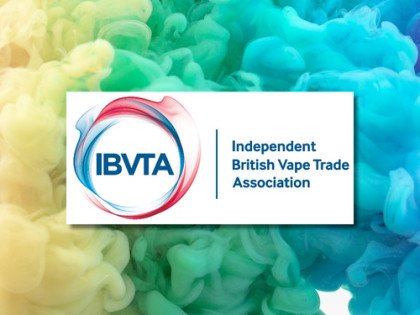The research paper, titled A study of pyrazines in cigarettes and how additives might be used to enhance tobacco addiction, was published in the British Medical Journal’s Tobacco Control journal. Pyrazines are a group of chemical compounds that, in cigarettes, play a role in optimising the delivery of nicotine to the body’s central nervous system’s receptors.
The team conclude: “Cigarette additives and ingredients with chemosensory effects that promote addiction by acting synergistically with nicotine, increasing product appeal, easing smoking initiation, discouraging cessation or promoting relapse should be regulated by the US Food and Drug Administration.”
The problem comes that throughout their literature review they couldn’t be more precise that pyrazine additives MAY be reinforcing the addictive qualities of nicotine: “Pyrazine stimulation of olfactory receptors may enhance learned behaviour, either by acting alone or in combination with other sensory modality stimuli.”
It gets even more fuzzy when applied to vaping ecigs: The researchers cite the presence of tetramethyl-pyrazine (0.9–1.5%), 2,3,5-trimethylpyrazine (0.3–4.5%) and acetylpyrazine (0.4–1.6%) in eliquid. But, and it’s a big but, this was from one piece of work looking at V2 cigalikes.
The group are making the flawed assumptions that:
- These are additives placed into the juice for nefarious reasons rather than being part of the natural juice profile.
- That the results are in themselves reliable.
- That the effects are comparable regardless of a lower concentration.
- That Big Tobacco is somehow behind this.
The fear they express is that “Taken together, pyrazines appear to increase product appeal and make it easier for non-smokers to initiate smoking, more difficult for current smokers to quit, much easier for former smokers to relapse into smoking, and may mask the risks of both active and passive smoking.”
Fears that ignore the absence of evidence of a gateway effect, ignore the research into the efficacy of vaping as a quit tool, ignore the widely fluctuating results of juice analysis from test to test and ignore research demonstrating zero impact on non-vapers...oh, and that vaping is not smoking.
Recent research by Konstantinos Farsalinos concluded that the nicotine in ecigs appears to be far less addictive than in cigarettes while other studies would say the levels cited for the pyrazines is vastly higher than found in most other studies.
While research looking at the components of juice is to be welcomed, calling for regulation without any evidence appears to be the product of cloudy judgement and the relevance of this study to vaping is tenuous at best. Veritas, the motto of Harvard University, is Latin for ‘Truth’ – we seem to still be some way from it with this research.
Dave Cross
Journalist at POTVDave is a freelance writer; with articles on music, motorbikes, football, pop-science, vaping and tobacco harm reduction in Sounds, Melody Maker, UBG, AWoL, Bike, When Saturday Comes, Vape News Magazine, and syndicated across the Johnston Press group. He was published in an anthology of “Greatest Football Writing”, but still believes this was a mistake. Dave contributes sketches to comedy shows and used to co-host a radio sketch show. He’s worked with numerous start-ups to develop content for their websites.
Join the discussion
Expert Reaction to Pregnancy Study
Experts have reacted to the QML study of impacts of vaping in pregnancy and comparison with smoking
Study: Vapes Help Pregnant Quitters
A new study from Queen Mary University of London finds that vapes help pregnant smokers quit and pose no risk of poor pregnancy outcomes
IBVTA responds to UCL study
The Independent British Vape Trade Association has responded to University College London research and said the findings show the Government’s smoke-free ambition is stalling
Cochrane Review Echoes Swedish Success
The Cochrane Review echoes the Swedish approach, finding less harmful alternatives like vaping are superior to other quit methods, says Smoke Free Sweden







-listing400.jpg)



